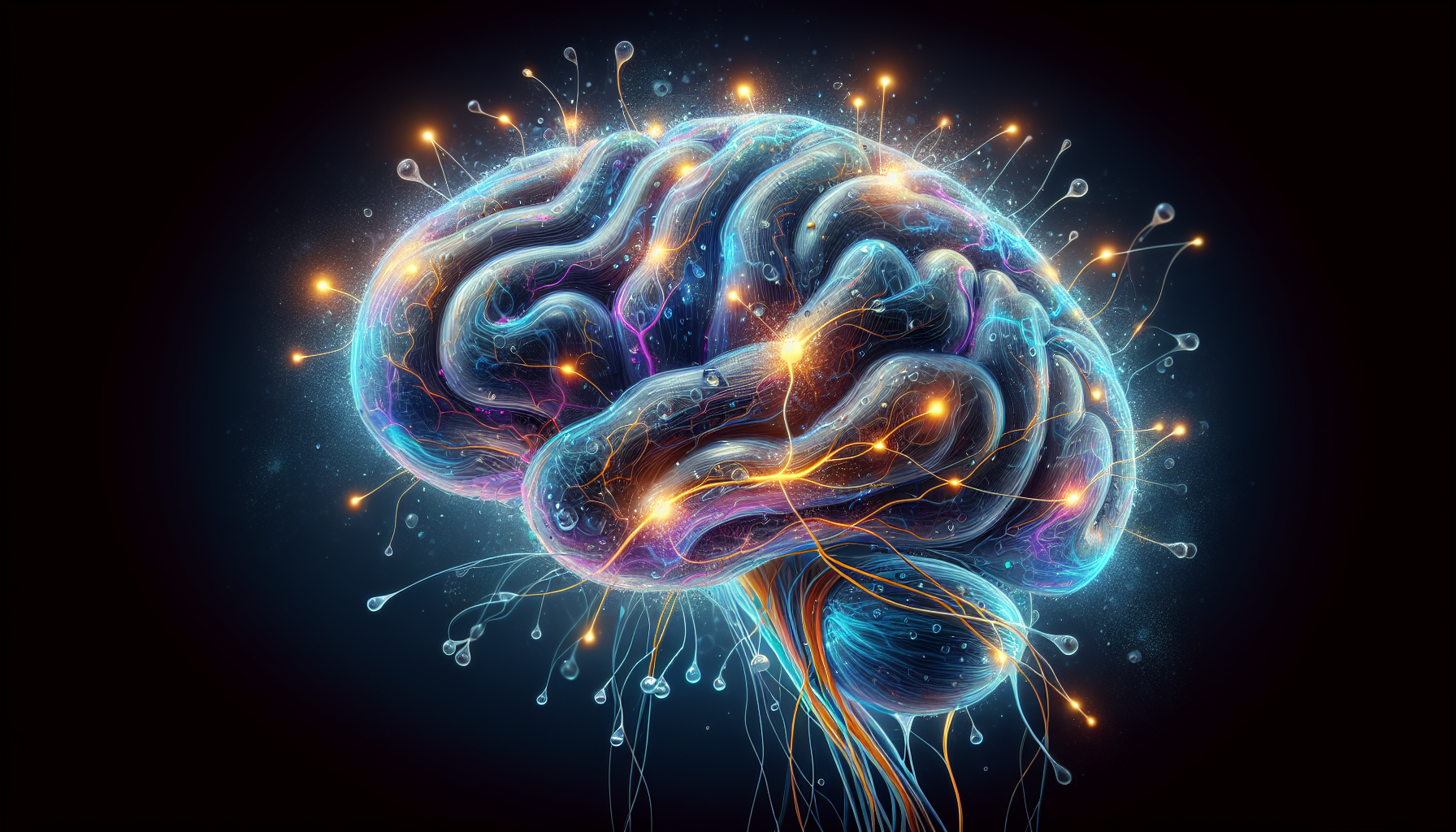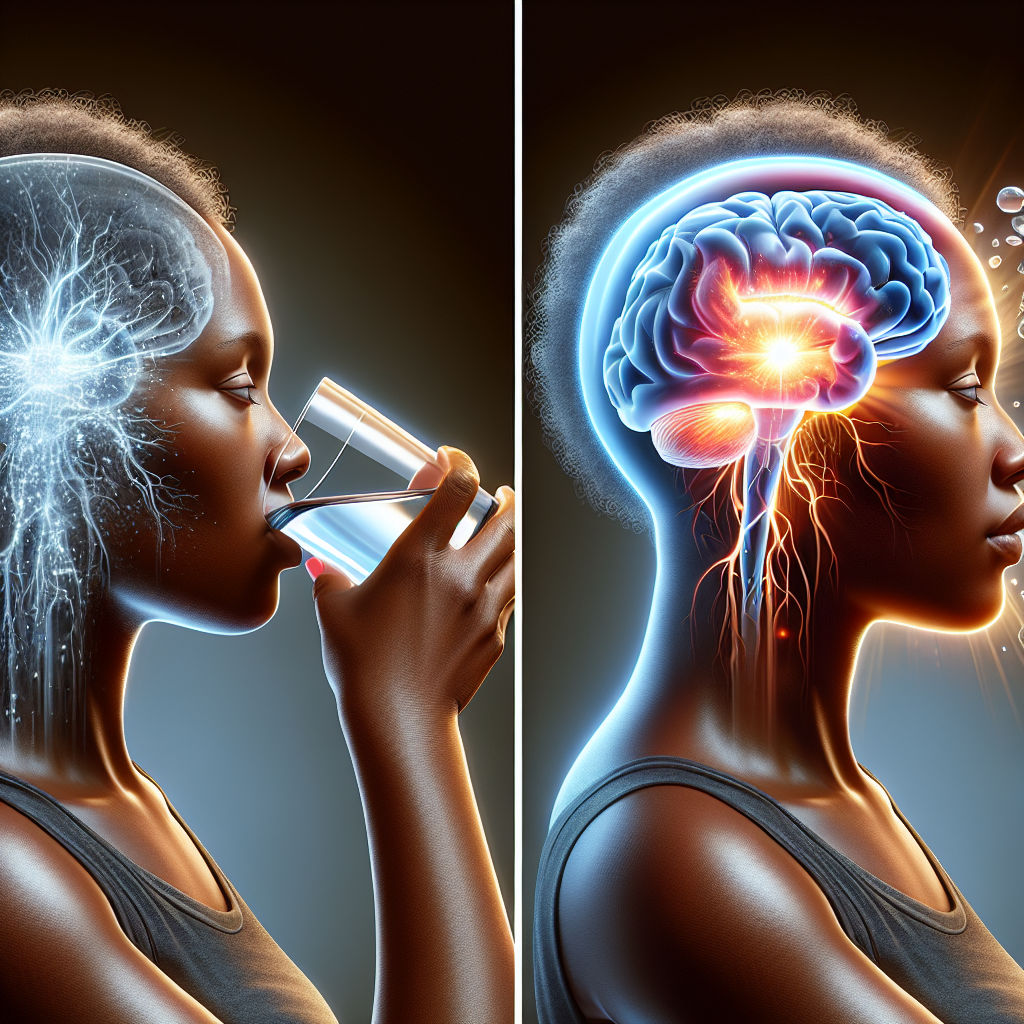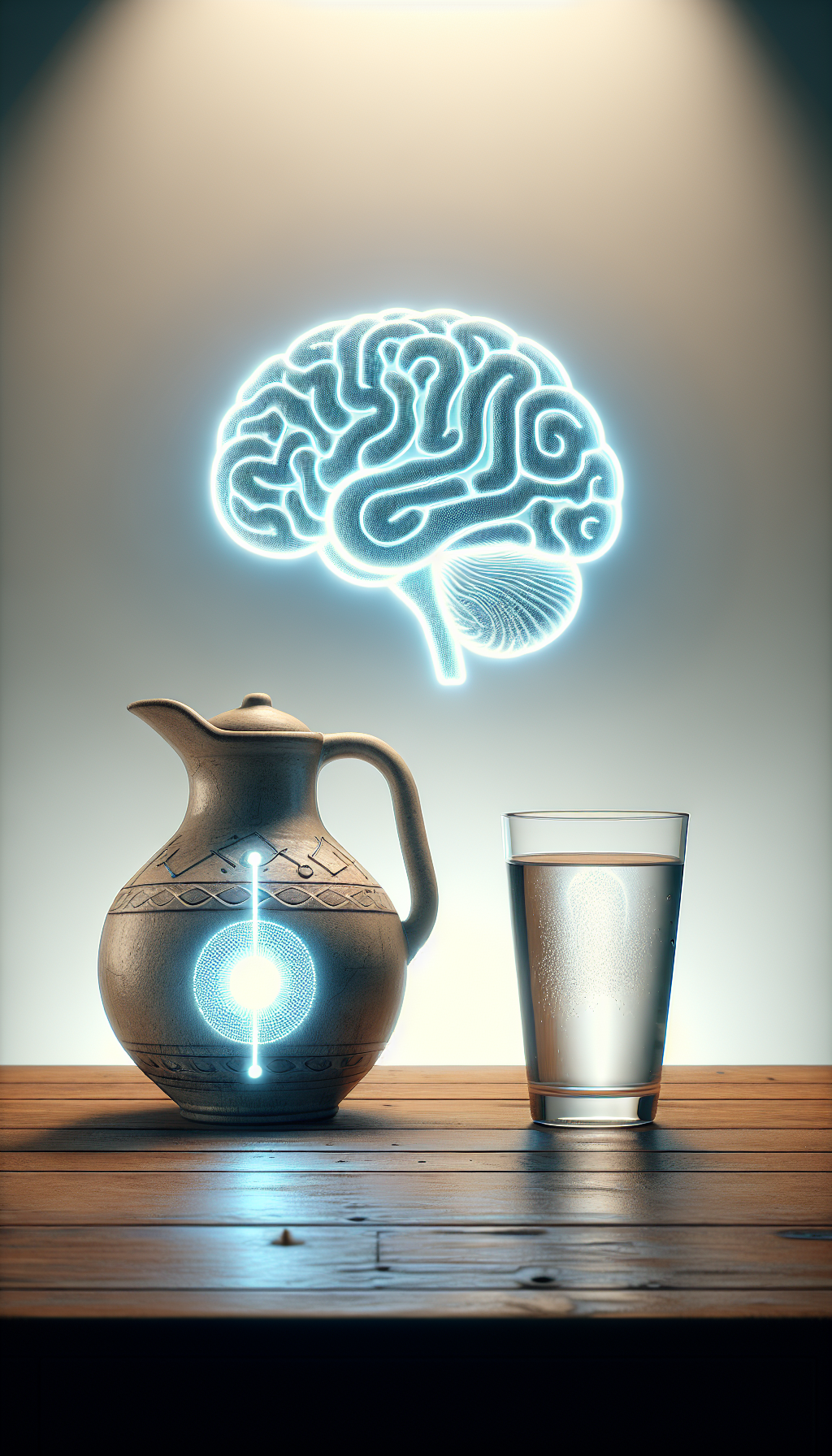Hydration is a critical but often overlooked component of cognitive health. The brain is approximately 75% water, and even mild dehydration can impact cognitive function, affecting memory, attention, and decision-making processes. Understanding the intricate relationship between hydration and brain health is essential for maintaining cognitive function throughout the lifespan.
The Link Between Hydration and Cognitive Performance
Water is the principal chemical component that constitutes 60% of body weight. Every system in our body depends on water to function correctly, including the brain. Hydration impacts the brain’s structure and function, and adequate fluid intake is necessary to maintain the balance of neurotransmitters and hormones that influence cognitive processes.
Dehydration can lead to an imbalance in electrolytes such as sodium and potassium, which are crucial for nerve signal transmission. When these electrolytes are out of balance, it can affect brain function, leading to symptoms like confusion, fatigue, and a decrease in cognitive performance.
Cognitive Impairment Due to Dehydration
Studies have shown that even mild dehydration – a body water loss of 1-3% – can impair many aspects of brain function. For example, a study in the journal "Psychophysiology" found that dehydration can impair attention, executive function, and motor coordination. This level of dehydration can happen quickly, especially in warm climates or during exercise, making it vital to continually replenish fluids.
Hydration and Brain Health Across the Lifespan
Hydration is not only crucial for short-term cognitive performance but also for long-term brain health. Chronic dehydration may increase the risk of developing neurological conditions such as dementia. Therefore, maintaining proper hydration is a simple yet effective strategy for promoting brain health across the lifespan.
How to Stay Hydrated for Optimal Cognitive Function
To maintain hydration and support cognitive health, it is recommended to drink at least 8 glasses (approximately 2 liters) of water per day. However, individual needs may vary based on factors such as age, sex, weight, climate, and activity level. Here are some tips to ensure adequate hydration:
- Start your day with water: Begin with a glass of water in the morning to replenish fluids lost during sleep.
- Monitor your fluid intake: Keep track of how much water you drink throughout the day.
- Eat water-rich foods: Consuming fruits and vegetables with high water content can contribute to your overall fluid intake.
- Limit diuretics: Beverages like coffee and alcohol can increase fluid loss and should be consumed in moderation.
Recognizing Dehydration
Understanding the signs of dehydration can help prevent its negative impact on cognitive health. Symptoms of dehydration include:
- Dry mouth and lips
- Headache
- Fatigue or drowsiness
- Reduced urine output
- Dark yellow urine
- Dizziness or lightheadedness
If you experience any of these symptoms, it is crucial to increase your water intake immediately.
Studies and Research Supporting Hydration for Cognitive Health
Several high-quality studies and resources support the importance of hydration for cognitive health:
- A study published in "The Journal of Nutrition" found that dehydration affects cognitive function in young women, with mood and concentration being particularly susceptible to the effects of fluid deprivation.
- Research in the "European Journal of Clinical Nutrition" demonstrates that water supplementation can improve cognitive performance in children.
- The "American Journal of Clinical Nutrition" has published findings that indicate hydration status can influence cognitive function in older adults, making water intake a critical factor in aging populations.
These resources provide compelling evidence that hydration plays a crucial role in cognitive health and performance across different age groups.
Integrating Hydration into a Holistic Health Strategy
Hydration should be a key component of a holistic approach to health, which includes balanced nutrition, regular physical activity, and mental wellness practices. For comprehensive information on optimizing brain health, consider reading about neuroplasticity-enhancing techniques and mindfulness meditation practices for cognitive resilience.
Conclusion
Hydration is fundamental to our overall well-being and plays a significant role in maintaining cognitive health. By understanding the impact of water on brain function and integrating proper hydration habits into daily life, we can support our cognitive abilities and promote long-term brain health. Remember to monitor your hydration levels, consume water-rich foods, and manage your intake of diuretics to ensure optimal cognitive performance.
For more detailed insights into maintaining cognitive health and combating neurological conditions, reading about early detection strategies for neurodegenerative conditions can provide valuable information. By staying informed and proactive about hydration and cognitive health, we can enhance our quality of life and protect one of our most vital organs – the brain.



